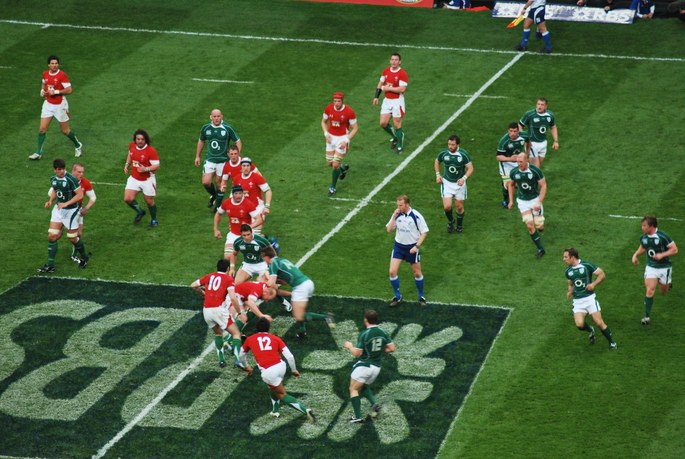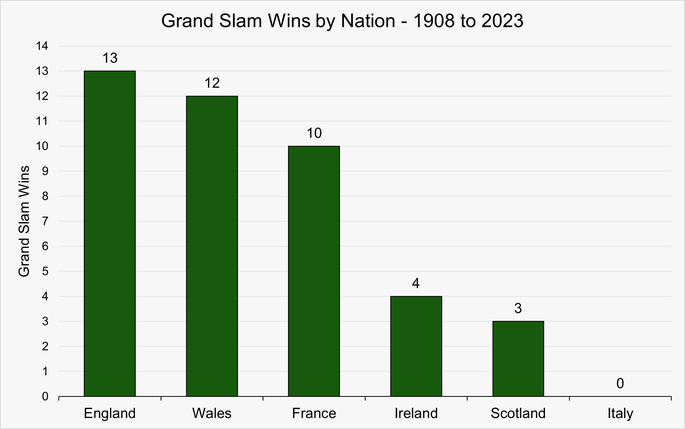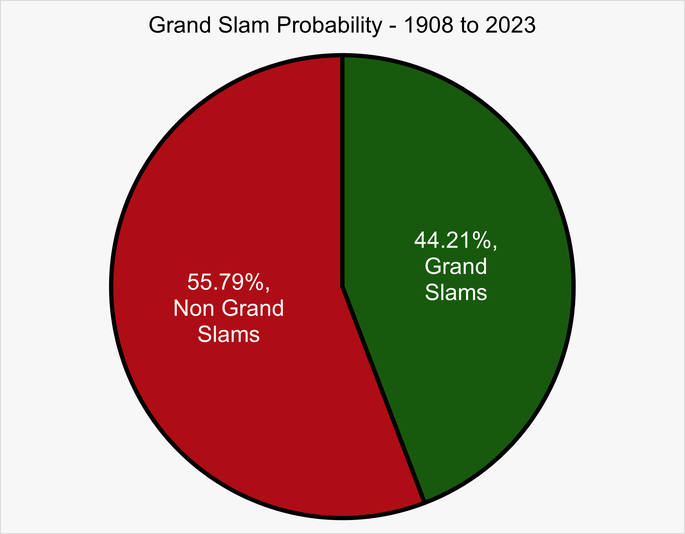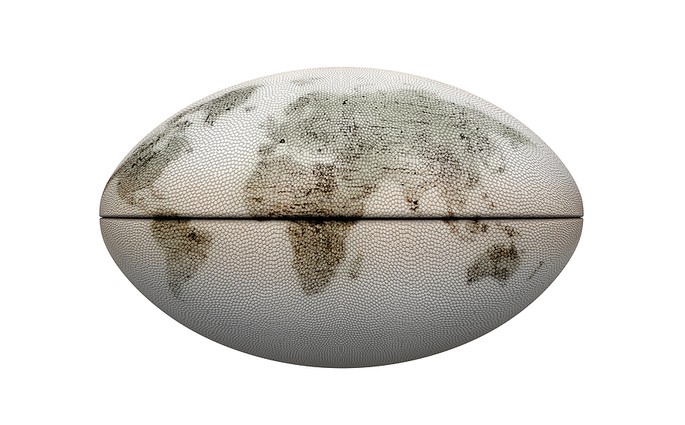 Each sport has its own achievement that players and teams aim for. In football, for example, the Quadruple is the ever-elusive trophy-chase that sees English teams trying to win all of the Premier League, Champions League, FA Cup and League Cup. In tennis, golf and rugby, the Grand Slam is the term used, although it means something different in each of the sports. There is some similarity between tennis and golf’s Grand Slams, insomuch as the term means to win all of the Major tournaments that take place that year, but in rugby it is something else entirely.
Each sport has its own achievement that players and teams aim for. In football, for example, the Quadruple is the ever-elusive trophy-chase that sees English teams trying to win all of the Premier League, Champions League, FA Cup and League Cup. In tennis, golf and rugby, the Grand Slam is the term used, although it means something different in each of the sports. There is some similarity between tennis and golf’s Grand Slams, insomuch as the term means to win all of the Major tournaments that take place that year, but in rugby it is something else entirely.
In the world of rugby union, the Six Nations Championship is the pinnacle of the sport in the Northern Hemisphere, pitting the most successful rugby nations up against one another in a tournament in which the winner will have won the Grand Slam if they’d have defeated the other five teams in their matches against one another. There is also another meaning of Grand Slam, which is when a touring side heading to the United Kingdom managed to defeat all four of the home nations during their tour, but this is much less commonly referred to as a Grand Slam than the Six Nations.
Quick Answer: How Often is there a Grand Slam Winner in the Six Nations?
Between the first possible Grand Slam in 1908 and 2023, there have been 42 Grand Slam winners of the Six Nations, and the Five Nations prior to 2000. This means that 44.2% of Championship wins were as a Grand Slam.
England have the most Grand Slam wins with 13, followed by Wales with 12, France with 10, Ireland with 4 and Scotland with 3.
The Six Nations Format

Ireland and Wales along with England, Scotland, France and Italy make up the Six Nations. Photo by Arun Marsh, flickr
Before we can talk in any detail about a Grand Slam in the Six Nations Championship, it is first important to discuss the format of the competition. That is because it is the format that allows a team to complete a Grand Slam in the first place. The tournament began life in 1883 as the Home Nations Championship, seeing England, Ireland, Scotland and Wales go up against one another. In 1910, France was added and the competition became the Five Nations Championship. In 2000, Italy came on board and the tournament turned into the Six Nations, which it remains today.
The first weekend in February is when the tournament gets underway, running until either the second or third Saturday of March, depending on how quickly the games have been able to take place. Each team goes up against every other team once, resulting in a total of 15 matches being played. Home advantage alternates each year in order to keep the competition as fair as possible. Since 2017, a bonus points system has been used that sees two points given for a draw, four for a win, none for a loss and one bonus point given for scoring four or more tries. You can also get one bonus point given if you lose by seven points or fewer.
Since the bonus point system was introduced, another three bonus points are awarded to any team that completes the Grand Slam, which is there to ensure that they can’t be beaten to the Six Nations title by a team that has accumulated a large number of bonus points. Alongside the title of Six Nations champion to the winner, a Wooden Spoon is a metaphorical award that is handed to the team that comes last, or loses all of its games. Because each of the teams play each other once, that is how it is possible to achieve the Grand Slam: by winning every single match played.
Grand Slam Winners
Now that we know how the Six Nations works and how it is possible to win a Grand Slam, it is worth having a look at the winners of it over the years. We will not put in the years when the Grand Slam wasn’t won. Please note that although the 1908 and 1909 tournaments didn’t include France, Wales were still technically Grand Slam winners as they also played and defeated France in matches held during the Home Nations Championships in both years. It wasn’t considered a Grand Slam prior to 1908, even if a country beat all three of the other home nations.
Six Nations Grand Slam Winners (All Formats) – 1908 to 2023
| Year | Tournament Format | Grand Slam Winner |
|---|---|---|
| 2023 | Six Nations | Ireland |
| 2022 | Six Nations | France |
| 2019 | Six Nations | Wales |
| 2018 | Six Nations | Ireland |
| 2016 | Six Nations | England |
| 2012 | Six Nations | Wales |
| 2010 | Six Nations | France |
| 2009 | Six Nations | Ireland |
| 2008 | Six Nations | Wales |
| 2005 | Six Nations | Wales |
| 2004 | Six Nations | France |
| 2003 | Six Nations | England |
| 2002 | Six Nations | France |
| 1998 | Five Nations | France |
| 1997 | Five Nations | France |
| 1995 | Five Nations | England |
| 1992 | Five Nations | England |
| 1991 | Five Nations | England |
| 1990 | Five Nations | Scotland |
| 1987 | Five Nations | France |
| 1984 | Five Nations | Scotland |
| 1981 | Five Nations | France |
| 1980 | Five Nations | England |
| 1978 | Five Nations | Wales |
| 1977 | Five Nations | France |
| 1976 | Five Nations | Wales |
| 1971 | Five Nations | Wales |
| 1968 | Five Nations | France |
| 1957 | Five Nations | England |
| 1952 | Five Nations | Wales |
| 1950 | Five Nations | Wales |
| 1948 | Five Nations | Ireland |
| 1928 | Five Nations | England |
| 1925 | Five Nations | Scotland |
| 1924 | Five Nations | England |
| 1923 | Five Nations | England |
| 1921 | Five Nations | England |
| 1914 | Five Nations | England |
| 1913 | Five Nations | England |
| 1911 | Five Nations | Wales |
| 1909 | Home Nations Championship | Wales |
| 1908 | Home Nations Championship | Wales |
You can see that it is fairly common for a team to win the Grand Slam in the tournament, with Wales, England, and France all having won back-to-back Grand Slams at least once over the years.
Winners of Consecutive Grand Slams – 1908 to 2023
| Team | First Win | Second Win |
|---|---|---|
| France | 1997 | 1998 |
| England | 1991 | 1992 |
| England | 1923 | 1924 |
| England | 1913 | 1914 |
| Wales | 1908 | 1909 |
Interestingly, no team has won three consecutive Grand Slams without a break of at least a year between two of them. That being said, here are some examples of teams that have had runs of winning several Grand Slams without anyone else winning the Grand Slam in the meantime, even if there has been a break between them:
- Wales – 1908, 1909, 1911
- England – 1913, 1914, 1921, 1923, 1924
- England – 1991, 1992, 1995
- France – 1997, 1998, 2002
No team has managed back-to-back Grand Slams since the competition became the Six Nations, although Wales won it in 2005 and then again in 2008, with no one else winning a Grand Slam in the meantime.
Grand Slams By Nation
Having looked at who has won the Grand Slam when, it is worth taking a look at how many times each of the countries has managed to win a Grand Slam over the years:

How Common Are Grand Slams?
The final point to investigate regarding Grand Slams in the Six Nations is to have a look at the mathematics. During the period of time that we’re looking at, which runs from when the Grand Slam was first considered to have been competed over in 1908 running through to 2023, there have been 95 occasions in which the Grand Slam could have been won. We have ignored 1932-1939, which was a period in which only the Home Nations competed against one another. During that time, the Grand Slam was achieved on 42 occasions.

That means that a Grand Slam has been managed 44.21% of the time, or 40.77% of the time if you want to include the period between 1932 and 1939. We have chosen not to because the Five Nations had become an established event by then, so the fact that France weren’t part of the tournament means that many wouldn’t have seen it as a real Grand Slam anyway. As a result, we’re saying that a Grand Slam is likely to be achieved just shy of half of the time, with the longest period without a Grand Slam (in which the tournament has taken place) being the ten years between England’s win in 1957 and France managing it in 1968.
Grand Slam Tours

Whilst the Grand Slam is very much referring to the Six Nations when it is mentioned by most people, there are some that might refer to a Grand Slam as being achieved by a touring country heading to the United Kingdom and managing to get wins against all four of the home nations. The country touring the UK has to be from Australia, New Zealand or South Africa and play Test matches against all four home nations in order to be able to claim to have the touring Grand Slam. Some also think that matches against France should be considered as part of the Five Nations Grand Slam.
Here is a look at all of the countries that have achieved a Grand Slam tour over the years:
Grand Slam Tour Winners (up to 2022)
| Years | Visitor | Also Beat France? |
|---|---|---|
| 2010 | New Zealand | No |
| 2008 | New Zealand | No |
| 2005 | New Zealand | No |
| 1984 | Australia | No |
| 1978 | New Zealand | No |
| 1960-1961 | South Africa | No |
| 1951-1952 | South Africa | Yes |
| 1931-1932 | South Africa | No |
| 1912-1913 | South Africa | Yes |
Interestingly, Australia achieved something of a reverse-Grand Slam during the 1957-1958 tour. They lost to all four of the Home Nations during their visit, being the only team to have done so to date. In addition to losing to each of England, Scotland, Wales and Ireland, the Australian team on that tour also lost to France.
There have been 28 occasions in which a tour Grand Slam could’ve been completed at the time of writing, with a side managing to do so nine times. That means that a Grand Slam has been achieved 32.14% of the time that a touring country has come to the United Kingdom and taken on Tests against all four of the Home Nations. Here is how each country has got on:
Grand Slam Tour Winning Frequency (up to 2022)
| Country | Visits | Grand Slams (%) |
|---|---|---|
| South Africa | 9 | 4 (44.44%) |
| New Zealand | 9 | 4 (44.44%) |
| Australia | 10 | 1 (10.00%) |
The 1939-1940 Australian tour was cancelled because of the outbreak of the Second World War, so we haven’t included it in our stats. As you can see, Australia are traditionally the worst travellers of the possible tour Grand Slam winners, having only managed it once, which was in 1984. New Zealand and South Africa, meanwhile, have notched up exactly the same number of wins from the same number of tours. The biggest difference is when their tour Grand slams were achieved, with South Africa’s most recent coming in the 1960-1961 tour but New Zealand’s in 2010.
